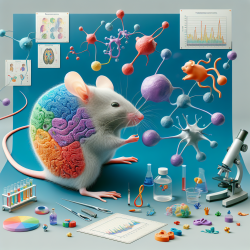The COVID-19 pandemic has highlighted the critical need for medical education to evolve and address the social determinants of health. A recent study titled "More than Just Soup: Use of a Student-Led COVID-19 Social Pediatrics Initiative to Propose the Integration of Social Medicine Electives in Undergraduate Medical Education" offers valuable insights into how incorporating social medicine into medical curricula can enhance the training of future physicians.
The Importance of Social Medicine in Medical Education
Social medicine focuses on understanding how social forces influence disease and health patterns. Despite its importance, it remains underrepresented in undergraduate medical education. The study conducted by Daccache et al. (2020) emphasizes the need for medical students to gain exposure to social medicine to prepare them for addressing health inequities effectively.
A Student-Led Initiative During COVID-19
The initiative involved third and fourth-year medical students at the University of Ottawa participating in a program called "More Than Just Soup." This program was designed to sustain clinical learning during the pandemic by using the social pediatrics model. Students conducted home visits to marginalized families, providing support and resources while adhering to public health protocols.
This hands-on experience was complemented with academic learning through articles, virtual guest speakers, and discussions on topics such as domestic violence identification and community support for children with autism spectrum disorder.
Impact on Learning Objectives
The study evaluated the impact of this initiative using learning objectives from the Royal College of Physicians and Surgeons of Canada’s CanMEDS framework. The results showed that students who participated in the initiative achieved significantly higher values for six out of nine social medicine learning objectives compared to a control group. These objectives included roles such as Communicator, Health Advocate, Medical Expert, Collaborator, Leader/Manager, and Professional.
Implications for Curricular Change
The positive outcomes from this initiative suggest that integrating social medicine into medical education can significantly enhance students' understanding of health disparities and improve their ability to work collaboratively with multidisciplinary teams. The study proposes incorporating interactive social medicine experiences throughout all four years of medical school as part of curricular changes.
Such changes could involve partnerships with community centers to provide Pre-Clerkship and Clerkship electives focused on vulnerable populations. These experiences would be paired with didactic learning and self-reflection to deepen students' understanding of social determinants of health.
Encouraging Further Research and Implementation
This study serves as a catalyst for further research and implementation of social medicine electives in medical curricula worldwide. By equipping future physicians with the skills needed to address healthcare disparities, we can promote better long-term health outcomes for vulnerable populations.
To read the original research paper, please follow this link: More than Just Soup: Use of a Student-Led COVID-19 Social Pediatrics Initiative to Propose the Integration of Social Medicine Electives in Undergraduate Medical Education.










